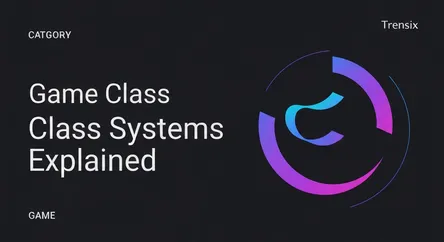Game
Game Class Systems Explained

Discover how class systems define character roles and abilities in video games, from RPGs to shooters, shaping your entire gameplay experience.
What is it?
A class system is a core gameplay mechanic, particularly in role-playing games (RPGs) and multiplayer titles, that defines a character's abilities, skills, and role. Players choose a class, such as a sturdy Warrior, a powerful Mage, or a stealthy Rogue, which dictates their strengths, weaknesses, and overall playstyle. Each class typically has a unique skill tree and specializes in a specific function like dealing damage (DPS), absorbing damage (Tank), or supporting allies (Healer). This system provides a structured framework for character progression and specialization.
Why is it trending?
Class systems remain a popular and trending mechanic because they add immense depth, strategic variety, and replayability to a game. They encourage players to experiment with different playstyles and promote teamwork in cooperative games, where a balanced team composition is often key to success. Games like Baldur's Gate 3 and hero shooters like Overwatch 2 showcase modern innovations in class design, offering hybrid roles and unique specializations that keep the formula fresh and engaging for both new and veteran players.
How does it affect people?
For players, a class system provides a clear sense of identity and purpose within the game world. It allows them to embody a fantasy archetype that resonates with them, fostering a deeper connection to their character. In multiplayer settings, it promotes social interaction and collaboration, as players must coordinate their distinct class abilities to overcome challenges. This reliance on teamwork builds community and makes successfully executing a strategy with a well-composed team a highly rewarding and memorable experience.